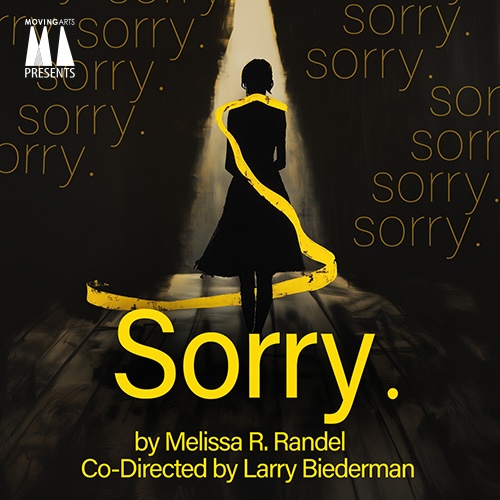
Jesus Castaños Chima and Tony Durán (Photo by Juan Tallo)
Reviewed by Madison Mellon
24th Street Theatre
Through May 18
RECOMMENDED
In a time when authoritarianism is rearing its head around the globe, La Razón Blindada shows how stories, imagination, and human connection can be powerful tools to confront those in power. Written and directed by Arístides Vargas and presented at 24th Street Theatre, this gripping two-person play draws on personal, political, and literary inspirations to challenge fascist ideology. The piece is inspired by Vargas’s own experience fleeing the Argentinian dictatorship of the 1970s, as well as his brother’s experience as a political prisoner. The story incorporates elements from Don Quixote, Franz Kafka’s “The Truth About Sancho Panza,” and the testimonies of multiple prisoners. The result is an absurdist and often poetic meditation on resistance and the role of storytelling in the face of oppression.
Set entirely in a prison, the play follows two political detainees who are allowed to speak to each other only on Sundays. During these visits, the men invent increasingly elaborate stories, with one taking on the persona of De La Mancha (Jesús Castaños-Chima), while the other responds as his loyal companion Panza (Tony Durán). Through these imaginative exercises, they escape the bleak confines of their reality and construct a shared fantasy world where they can express fears, hopes, and frustrations. These flights of fancy are both humorous and tragic, and they highlight the mental and physical toll of imprisonment as well as the human spirit’s capacity to create meaning under duress.
The performances are captivating throughout. Both Castaños-Chima and Durán have a magnetic, deeply rooted rapport that allows them to shift effortlessly between characters and tones. Confined to rolling chairs for nearly the entire show, they create an astonishing range of scenarios and emotions with just their voices and physicality. The use of the space is inventive and surprising, with cleverly choreographed sequences that utilize the confines of the staging to create dynamic moments. A standout moment comes when Durán delivers a lengthy monologue as a dog, channeling such specificity and humor that it garners mid-show applause. The limitations imposed by the play’s structure allows both actors to maintain an emotional immediacy that keeps the piece engaging across its many tonal shifts.
Because the play is so steeped in literary reference, it occasionally risks leaving the audience behind —particularly those unfamiliar with the texts it draws from. The dialogue, performed in Spanish with English supertitles (by R. Aleida Montejo is dense and rapid, and the supertitles are confined to a small screen in the center of the stage, so it is easy to miss nuance when the actors are positioned elsewhere. A segment that reimagines a scene from Don Quixote, in which Panza envisages himself governor of an island inhabited by Africans, also feels somewhat uncontextualized. While the play counters the passage’s colonialist narrative with its critique of structures of power, having De La Mancha take on exaggerated features while playing one of the islanders is nevertheless discomforting and may have benefitted from more framing.
Ultimately, La Razón Blindada is a necessary and timely play. It sharply deconstructs the absurdity of fascism and explores how humor and imagination can serve as forms of rebellion. The production’s heart — its celebration of resistance through storytelling — comes through clearly and is a reminder not to give in to the creeping tendrils of totalitarianism. It’s a demanding but rewarding piece that honors the resilience of those who have found freedom in the unlikeliest of places.
24th Street Theatre, 1117 W. 24th St., Los Angeles. Sat. 8 p.m.; Sun. 3 p.m.; Mon. May 12, 8 p.m.; thru May 18. https://www.24thstreet.org/ Running time: 80 minutes with no intermission.















